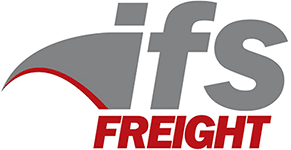3PL: What is it and What Are Some Examples?

Companies rely on third-party logistics (3PL) procedures to fulfill orders, control inventory, and warehouse goods. Supply chain management can be challenging, especially for smaller businesses or sellers who rely on logistics companies to receive, store, and transport merchandise.
This post will further explain what 3PL is, its diverse applications, and why it has become a popular choice for businesses striving for efficiency and growth.
What is Third-Party Logistics?
Third-party logistics, or 3PL, is a term for supply chain management and logistics services that are outsourced to a third-party company.
After the Motor Carrier Act of 1980 deregulated the trucking industry, U.S trucking carriers surged. This change prompted companies specializing in warehousing to broaden their roles in the supply chain, evolving into freight movers.
Since the early 2000s, the 3PL process has drastically changed to include additional services. These newer services offer more functions, such as transportation, warehousing, pick-and-pack, inventory forecasting, order fulfillment, packaging, freight forwarding, and more.
Thanks to the rise of online retailers and e-commerce, the industry continues to grow and adapt to meet customers’ needs. 3PLs help companies focus on their core business by managing warehousing and transportation operations.
As a result of improving efficiency and automating order fulfillment, 3PLs form the backbone of the supply chain. Additionally, third-party logistics providers stay on top of the latest best practices and technology, offering greater efficiency and scalability than a businesses can do on their own.
What are the Benefits of Using 3PL?
Several factors drive businesses to partner with 3PL companies rather than managing shipping and handling operations internally. The primary purpose of 3PL is to alleviate the burden on business owners and enable them to concentrate on other crucial aspects of their enterprise.
Here are the advantages of engaging with a 3PL provider:
1. Cost Savings
Working with third-party logistics providers often reduces operations and shipping costs. 3PL companies can negotiate better shipping rates and benefit from economies of scale
2. Scalability
Companies can focus on scaling their business and other avenues, such as product research, marketing, and sales, without worrying about the logistics process.
3. Expertise
Third-party logistic companies are experts in their field. They understand the process and have the ability to adapt to changes quickly.
4. Technology Offerings
Third-party logistics providers use diverse technological solutions, which can be seamlessly integrated with various eCommerce platforms and warehouse management software. This integration facilitates the streamlining of processes such as reporting and accounting while also enabling customers to track their orders conveniently.

What are Examples of 3PL Providers?
There are many 3PL providers currently in the market. Many are popular companies you see or hear about regularly. The examples below can better help you understand what 3PL is and does:
Expeditors International
Expeditors is known for its robust global network and services, including air and ocean freight, customs brokerage, and warehousing.
FedEx Supply Chain
Part of the FedEx family, they offer comprehensive supply chain solutions. Their expertise in managing complex logistics networks is evident in their ability to streamline supply chains for businesses of all sizes.
UPS Supply Chain Solutions
This division offers versatile logistics services, including freight forwarding, customs brokerage, and inventory management. Their global reach and experience enable them to handle logistics challenges effectively.
How Can You Benefit from 3PL?
The development and expansion of Third-Party Logistics highlights its important role in the current business landscape. 3PL providers offer specialized logistics services, enabling companies to concentrate on their core operations. This support brings expertise, flexibility, and scalability to supply chain management.
As technological innovations continue and business environments evolve, the significance of 3PL is expected to grow even more. In an ever-changing global market, 3PL’s ability to adapt and plan solidifies its place as an essential resource.
To learn more about 3PL or other logistics needs, contact us at IFS Freight.

